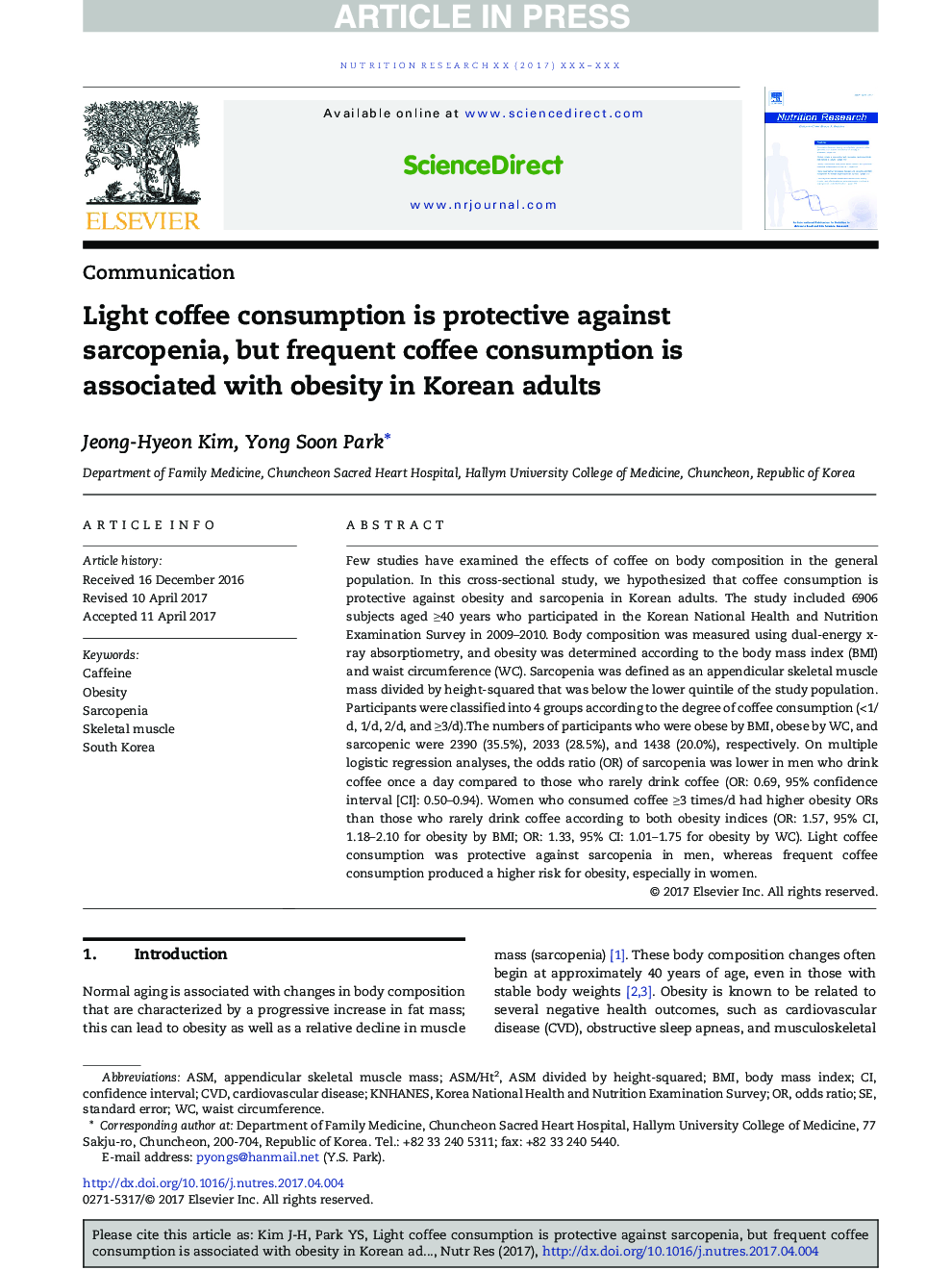| Article ID | Journal | Published Year | Pages | File Type |
|---|---|---|---|---|
| 5588573 | Nutrition Research | 2017 | 6 Pages |
Abstract
Few studies have examined the effects of coffee on body composition in the general population. In this cross-sectional study, we hypothesized that coffee consumption is protective against obesity and sarcopenia in Korean adults. The study included 6906 subjects aged â¥40 years who participated in the Korean National Health and Nutrition Examination Survey in 2009-2010. Body composition was measured using dual-energy x-ray absorptiometry, and obesity was determined according to the body mass index (BMI) and waist circumference (WC). Sarcopenia was defined as an appendicular skeletal muscle mass divided by height-squared that was below the lower quintile of the study population. Participants were classified into 4 groups according to the degree of coffee consumption (<1/d, 1/d, 2/d, and â¥3/d).The numbers of participants who were obese by BMI, obese by WC, and sarcopenic were 2390 (35.5%), 2033 (28.5%), and 1438 (20.0%), respectively. On multiple logistic regression analyses, the odds ratio (OR) of sarcopenia was lower in men who drink coffee once a day compared to those who rarely drink coffee (OR: 0.69, 95% confidence interval [CI]: 0.50-0.94). Women who consumed coffee â¥3 times/d had higher obesity ORs than those who rarely drink coffee according to both obesity indices (OR: 1.57, 95% CI, 1.18-2.10 for obesity by BMI; OR: 1.33, 95% CI: 1.01-1.75 for obesity by WC). Light coffee consumption was protective against sarcopenia in men, whereas frequent coffee consumption produced a higher risk for obesity, especially in women.
Keywords
Related Topics
Life Sciences
Biochemistry, Genetics and Molecular Biology
Endocrinology
Authors
Jeong-Hyeon Kim, Yong Soon Park,
